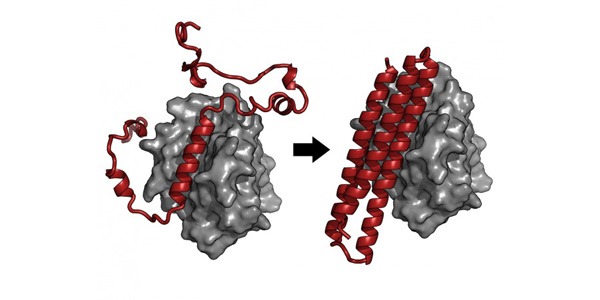Image credit: Molecular Engineering and Sciences Institute
Epstein-Barr virus, commonly known as the culprit behind mononucleosis, persists long after infection and can disrupt the body’s ability to rid itself of abnormal or damaged cells. This “population control” problem may contribute to lymphomas and other cancers.
UW researchers, including BioE Professor Patrick Stayton and many collaborators from the UW and Fred Hutchinson Cancer Research Center, have created a protein molecule that can prompt cancer cells infected with the Epstein-Barr virus to self-destruct. The team, whose research was published June 19 in Cell, computer-designed, engineered and tested the protein in an animal model of Epstein-Barr virus-positive lymphoma. The protein worked: the mice used in the model showed slowed tumor growth and lived longer.
The team’s work suggests the potential for new types of drugs that selectively target and kill only affected cells. “They may provide advantages over other current compounds that are toxic to other cells,” the researchers note.


